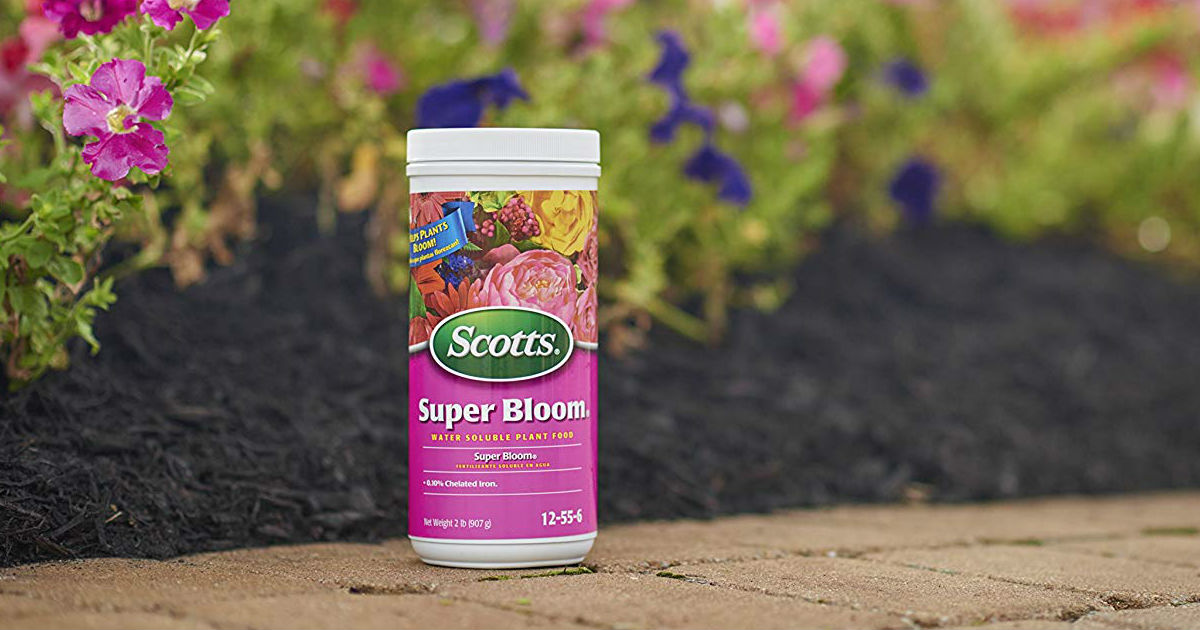Super bloom plant food is a specialized fertilizer designed to provide plants with the essential nutrients they need to produce vibrant and abundant blooms. Unlike regular plant food, super bloom plant food contains a higher concentration of phosphorus and potassium, which are crucial for flower development and fruit production.
By understanding the composition and benefits of super bloom plant food, gardeners can optimize their plant care routine to achieve maximum growth and flowering potential.
Understanding Super Bloom Plant Food

Super bloom plant food is a specialized fertilizer designed to promote abundant flowering and vibrant blooms in plants. It contains a unique blend of essential nutrients, including nitrogen, phosphorus, and potassium, in a balanced ratio that supports optimal plant growth and flower production.
Compared to regular plant food, super bloom plant food offers several advantages. Its higher concentration of nutrients provides a quick boost to plants, stimulating flower development and increasing the number and size of blooms. Additionally, it contains micronutrients and trace elements that are crucial for overall plant health and vitality, ensuring that plants have the necessary resources to support their flowering efforts.
How to Use Super Bloom Plant Food Effectively

To maximize the benefits of Super Bloom plant food and prevent any potential risks, it is essential to use it correctly. Here are the optimal application methods and precautions to consider:
Application Methods
Super Bloom plant food can be applied in various ways, depending on the type of plant and the desired results. The most common methods include:
- Foliar Feeding: Dilute the plant food according to the instructions on the product label and spray it directly onto the leaves. This method allows for quick absorption of nutrients by the plant.
- Soil Application: Mix the plant food into the soil around the base of the plant. Water the plant thoroughly after application to help the nutrients reach the roots.
- Hydroponic Systems: Add the plant food directly to the nutrient solution in hydroponic systems. Adjust the concentration according to the manufacturer’s instructions.
Importance of Following Instructions
It is crucial to follow the instructions on the product label carefully to avoid over-fertilizing or under-fertilizing your plants. Over-fertilizing can lead to nutrient burn, stunted growth, and even plant death. Under-fertilizing, on the other hand, will not provide the necessary nutrients for optimal plant growth.
Risks of Over-Fertilizing
Excessive use of Super Bloom plant food can lead to several potential risks, including:
- Nutrient Burn: High levels of nutrients can damage the roots and leaves of plants, causing them to turn brown and crispy.
- Stunted Growth: Over-fertilizing can inhibit plant growth and development, resulting in smaller plants with fewer flowers and fruits.
- Soil Salinity: Excess fertilizer can accumulate in the soil, increasing its salinity and making it difficult for plants to absorb water and nutrients.
- Environmental Impact: Over-fertilization can lead to nutrient runoff, which can contaminate waterways and harm aquatic ecosystems.
Plant Care Tips for Super Bloom Plant Food Users
Maintaining healthy plants while using Super Bloom plant food requires attention to proper watering, sunlight, and soil conditions. By following these tips, you can optimize plant growth and minimize potential problems.
Watering, Super bloom plant food
Super Bloom plant food contains essential nutrients that aid in plant growth and development. However, excessive watering can leach these nutrients from the soil, leading to nutrient deficiencies. Water plants deeply and allow the soil to dry out slightly between waterings. Avoid overwatering, as it can promote root rot and other problems.
Sunlight
Most plants require adequate sunlight for photosynthesis, the process by which they convert light energy into chemical energy. When using Super Bloom plant food, ensure plants receive sufficient sunlight according to their specific needs. Some plants, like tomatoes and peppers, prefer full sun, while others, like ferns and begonias, prefer partial shade.
Soil Conditions
Super Bloom plant food works best in well-drained soil. Heavy or compacted soil can restrict root growth and nutrient uptake. Amend the soil with organic matter, such as compost or peat moss, to improve drainage and aeration. Additionally, ensure the soil pH is within the optimal range for the specific plant species.
Troubleshooting Common Plant Problems
Despite following proper care tips, occasional plant problems may arise. Here are some common issues and their potential solutions:
- Yellowing leaves: This could indicate nutrient deficiencies, overwatering, or poor soil drainage. Adjust watering frequency, fertilize regularly, and improve soil conditions as needed.
- Stunted growth: This may be caused by insufficient sunlight, nutrient deficiencies, or root damage. Ensure plants receive adequate light, fertilize regularly, and check for any root problems.
- Leaf scorch: This can occur due to excessive sunlight or fertilizer burn. Move plants to a shadier location or reduce fertilizer concentration.